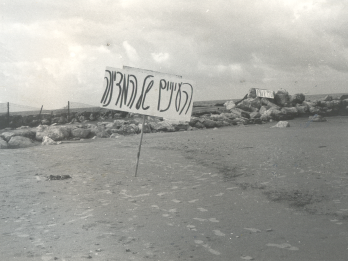Devar sefatayim (Mere Words): On the History of Crimea
David Leḥno
First Quarter of the 18th Century
Chapter Ten
It was in the year 5457, which is the year 1109 in their calendar [1697 CE], in the month of Tevet, when the chill and the cold began and the water of the great river Ozo Sway [the Dnieper] froze, the khan Haji Selim Giray sent his eldest son here, sultan Devlet Giray with all the generals of his armies, together with the army. They went to the land of Lesser Rus [Ukraine] of the Cossacks, where they spoiled their land and all their cities in their settlements. They burned all their fortresses in fire and killed a vast number of them by the sword without mercy, from youth to the old, children and women, and they took plunder, and they destroyed twenty-six unwalled cities, and they wreaked a great vengeance.
At that time, the Muslims living in the land of Krasov rose up against the Jews and against the uncircumcised and they slandered the synagogue and the two houses of profanation, and brought their claims before the tribunal before khan Selim Giray here, saying that the Jews had added to and expanded the synagogue building. Witnesses testified and pointed with their finger, showing the spot and marks of the addition. Thus, a decree was issued by the king, and he sent an agent with an open letter in his hand, with the instruction to destroy the area that they had added to the building.
When the Jews saw that the Muslims had destroyed the houses of idol worship without mercy, they were afraid that they might also rise up against the synagogue and destroy it in its entirety, not just some of it. They therefore received permission from the [Jewish] religious judge and they went up and removed the roof tiles and knocked down the beams of the building. This occurred on the fast of Esther. The king left them a remnant, with God’s help, and he gave them permission to pray there. This, too, was from the Lord of Hosts, who was marvelous in His counsel and great in resourcefulness to provide a sign and memory for latter generations.
Chapter Eleven
In the year 5459, which is 1111 according to their accounting, on Wednesday, the 29th of the month of Elul, at noon, the sun was struck entirely, and there was darkness on the face of the earth, until the stars appeared in the sky. This was a sign and a signal, as a biblical verse will be fulfilled for us: Thus says the Lord: do not learn the way of the heathen, and do not be dismayed at the signs of heaven, for the heathen are dismayed at them (Jeremiah 10:2). And in the year 5508, which is the year 1171 in their accounting, the sun was struck on Thursday, the 28th of Tammuz, just after noon, and the stars were seen on that day. That was the year when the Aza fortress was built, on the day when Arslan Giray entered into Crimea here, to come and sit on the throne. This was the beginning of his reign over the land of Crimea, with good fortune. [ . . . ]
Chapter Thirteen
And two kings set out, the king of Poland and the White King of Moscow [Peter I] with all their regiments and their armies, a very great mass of soldiers, to go toward the king of Sweden [Charles XII]. They approached him and found him in the place of their encampment. The king of Moscow encamped in a fortified city named Vilna and also near its borders, with all his army. The king took counsel to send his regiments and his soldiers to make war suddenly upon the camp of Sweden, in order to set his camp in a panic at night, at the beginning of the middle watch. All the men of arms rose up to do so. In the city there were Jews who were subject to the king of Poland, and upon hearing about the counsel taken against the king of Sweden, two or three the leaders of our people rose up and told the king of Sweden the entire matter. All of them [the Swedish soldiers] were alarmed, and they rose up and readied themselves and gathered strength and stood on watch and on guard with their weapons for a time of trouble, for a day of battle and war. During that night all the commanders of the army together with all the men of war arose and left the city of Vilna. They crossed the great bridge that is before the city, and fell upon the army of Sweden their enemy. When they [the Swedes] saw them [the Russians] they rose up against them and slaughtered them and smote them with the stroke of the sword, and with slaughter and destruction [see Esther 9:5], a very great killing until the end of them. Thus, they wreaked a great vengeance upon them and inflicted many casualties upon them.
When the king of Moscow saw that the king of Sweden had destroyed his whole army he took courage and set out to wage war against him. He sent the general of his army, Sharmat Oglo, to bring together and gather up all his army from the mountains of darkness [the Urals] to the land of Lesser Rus and Butakli [the land of the Cossacks on the Dnieper], to rise up against them as an army and avenge the spilled blood of his servants at the hand of the king of Sweden.
Credits
Published in: The Posen Library of Jewish Culture and Civilization, vol. 5.



